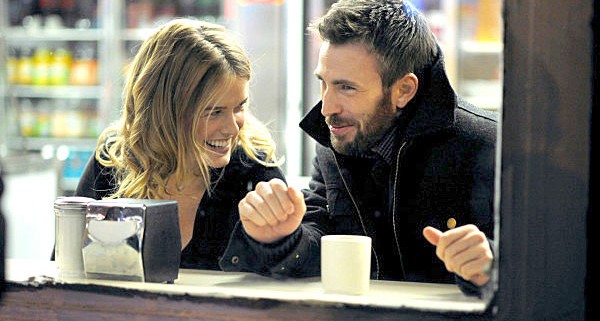Film Before We Go fails to captivate with dialogue
After long expressing a desire to work behind the camera, actor Chris Evans has finally made his directorial debut. His new movie, Before We Go, in which Evans also plays one of the two lead roles, tells the story of strangers who meet unexpectedly and spend a night together in New York City. Evans’ latest venture echoes the masterful Before trilogy but ultimately fails to find a rhythm between the two characters.
The movie starts with trumpet musician Nick (Evans) playing at Penn Station in the middle of the night. Meanwhile, Brooke (Alice Eve) is frantically running through the station to catch the last train, which she misses anyway. With no money and a broken cell phone, Brooke catches the attention of Nick. Nick offers to assist Brooke in getting home before the morning. Though obstacles keep the duo from doing that, Nick and Brooke end up traveling throughout the city, discovering revelations about the romantic relationships they have with their respective partners and developing a connection with one another.
Aesthetically speaking, the movie’s cinematography is beautiful. Shot in dark, soft tones that bear a slight resemblance to lomography, Before We Go will surely leave audiences content with its visual elements. The photography of the film not only captures the anxiety of the characters but also accentuates the beauty of winter in New York City. The scenes are taken by cinematographer John Gulesarian, who also shot indie drama Like Crazy.
“[Gulsearian] was wonderful, I mean, being a first timer, you don’t necessarily have the technical lingo to express the look you want,” Evans said in a roundtable interview. “You know the flavor you want to taste, you just don’t know the ingredient that goes into it. You can reference it.”
The unspoken third main character in the film, New York City, weasels itself into all the essential plot points and makes an otherwise vacuous movie more complex. During the course of the night, Brooke and Nick travel through discernible landmarks of Manhattan, and it is the elements of the city that push against their ultimate goal.
“The thing that is noticeable to me about New York is that it is actually a city that sleeps between 1 a.m. and 5 a.m., where no one is around,” Eve said. “And that’s why Brooke was screwed, she was lost, and so she had to go with [Nick]; she didn’t have any choices.”
Throughout the night, Brooke and Nick demonstrate their budding relationship through banter and hijinks. In one scene, Brooke and Nick crash a party in which they pretend to be part of a band. Brooke sings “My Funny Valentine,” with Nick accompanying on the trumpet. In another scene, Nick calms a nervous Brooke by telling her to use a dilapidated phone booth to pretend to call her younger self and warn her about the future.
Though aspects of the film are charming, it is still disorienting
because even at the best of times, it
is unbelievable how two beautiful people, one from Marvel and one from the Star Trek universe, can be forlorn in romance. The fact that Captain America is playing the trumpet all by himself in the middle of the night is a discrepancy that never goes away. Unfortunately, the script is not strong enough to mask the massive identities Evans and Eve have outside of their franchises. Instead, the movie is reduced to a series of “woe is mine” conversations about relationships. It’s not like in Before Sunrise, where, in a similar situation, the two characters spend a night together but end up realizing more about themselves and how they see the world. Though it’s almost criminal to size up Brooke and Nick’s relationship against Celine and Jesse’s epic connection, Before We Go never seems to get it right with the main characters’ chemistry.
Nevertheless, Evans explained that there was difficulty finding a script to which he connected.
“It’s a matter of finding something that you are passionate about, you connect to, but also something that the producers are willing to let you direct. It’s not like being a first-time director they’re throwing Aaron Sorkin scripts at you,” Evans said. “I can’t tell you how many scripts I read that were sh*t and realize that they’re sh*t because no one’s got to them; that’s why they’re coming to me.”
Ultimately, Evans isn’t quite the next Ben Affleck, Clint Eastwood or any other acclaimed actor-director. He still has a bit to learn about the production process and selecting scripts with more captivating dialogue, but his humble demeanor will help in acquiring a skill set necessary for great movies.
“I’ve absolutely fallen in love with it and the lessons I’ve learned, the tools I’ve picked up, and very eager to tackle the next one,” Evans said. “Who knows how that will evolve.”

